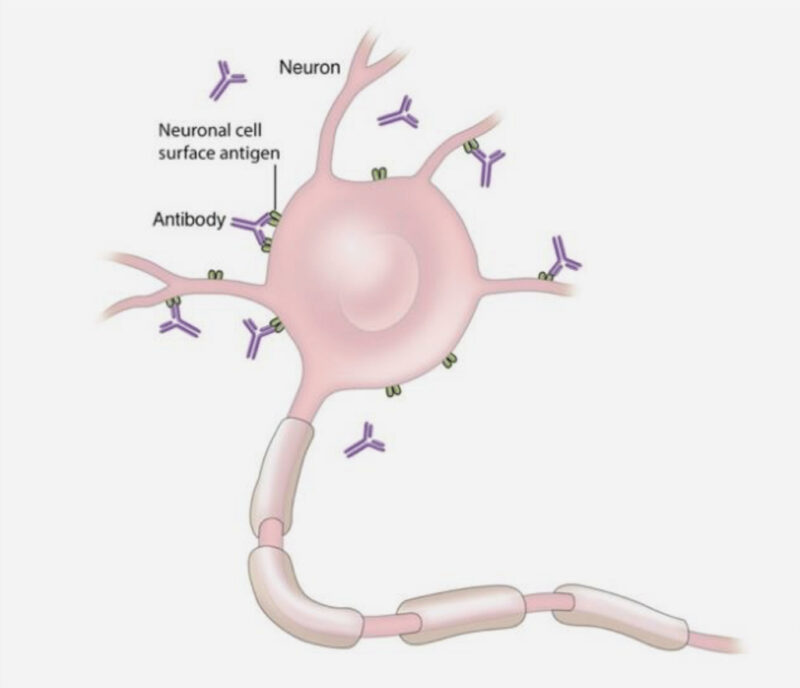Today we’re learning about a rare neurological condition called autoimmune encephalitis. Autoimmune encephalitis occurs when “the body’s immune system mistakenly attacks healthy brain cells, leading to inflammation of the brain.”
Inflammation in the brain can significantly impact the body and cause a number of neurologic and psychiatric symptoms. Examples of potential symptoms include:
- Neurologic: “impaired memory and cognition, abnormal movements, seizures, and/or problems with balance, speech, or vision.”
- Psychiatric: “psychosis, aggression, inappropriate sexual behaviors, panic attacks, compulsive behaviors, euphoria or fear.”
One of the greatest challenges with autoimmune encephalitis is it is often misdiagnosed or mistaken for other diseases.
This is due to the rarity of the condition as well as the fact that symptoms can fluctuate or quickly progress. It also usually takes a combined effort of psychiatrists, neurologists, rheumatologists, and immunologists to recognize the disease.
Additionally because this condition is so rare, many questions about it remain unanswered.
As of today, research indicates that there may be an association with antibodies and proteins on the surface of nerve cells or within nerve cells.
When autoimmune encephalitis occurs, the antibodies attack healthy nerve cells within the brain for seemingly no apparent reason.
Some research indicates a possible connection to cancer or tumor growth. Medical research has confirmed that this condition is not genetic and typically affects people sporadically.
Autoimmune encephalitis can affect anyone at any age or of any gender. However, women, seemingly are impacted more by autoimmune diseases and historically a majority of diagnosed cases of autoimmune encephalitis have been in women.
In terms of identifying autoimmune encephalitis, a medical professional will look for rapid onset of the neurologic or psychiatric symptoms listed above, seizures without a known cause, or use MRI to show inflammation within the brain.
Given its rarity, the exclusion of other conditions is also required. If properly diagnosed, treatment may include tumor removal (if a tumor is located) or immunosuppressive therapy.
The goal of treatment is to decrease or reduce the inflammation to prevent long-term damage and progressive neurologic deterioration.
It is also important to note that some cases of autoimmune encephalitis can be triggered by an infection such as streptococcus and mycoplasma pneumonia and Herpes simplex virus.
While autoimmune encephalitis is a rare condition, it can be treated and some patients have made substantial or full recoveries.
For more information on autoimmune encephalitis, please visit AEAlliance.org.










